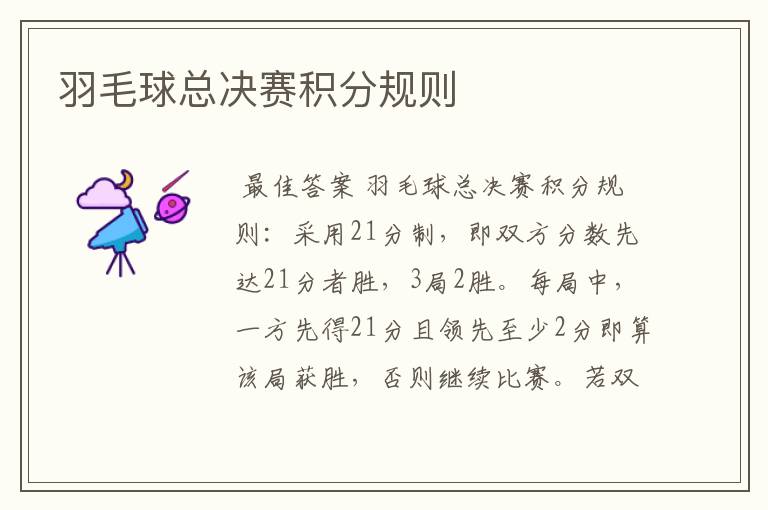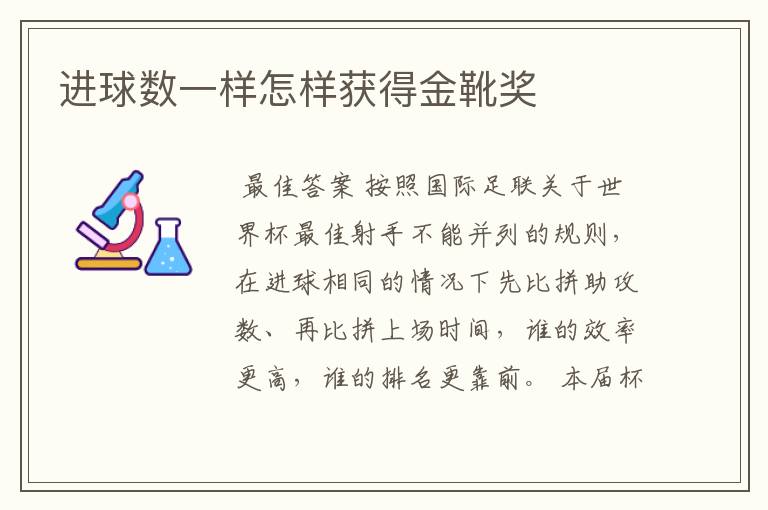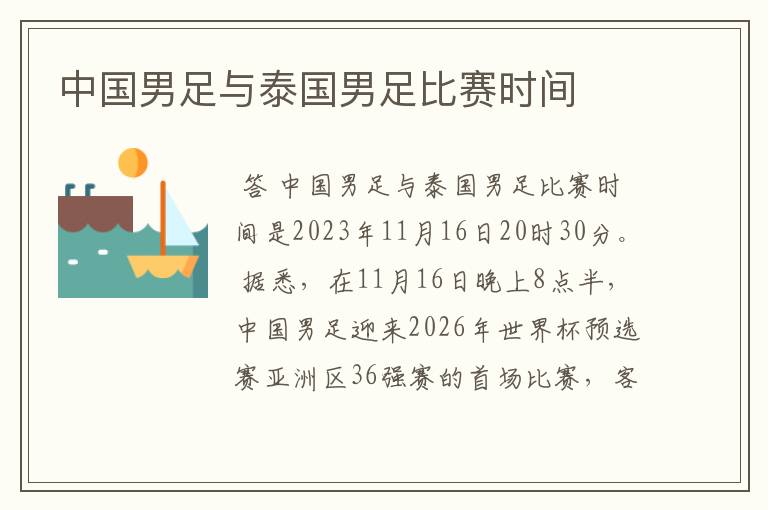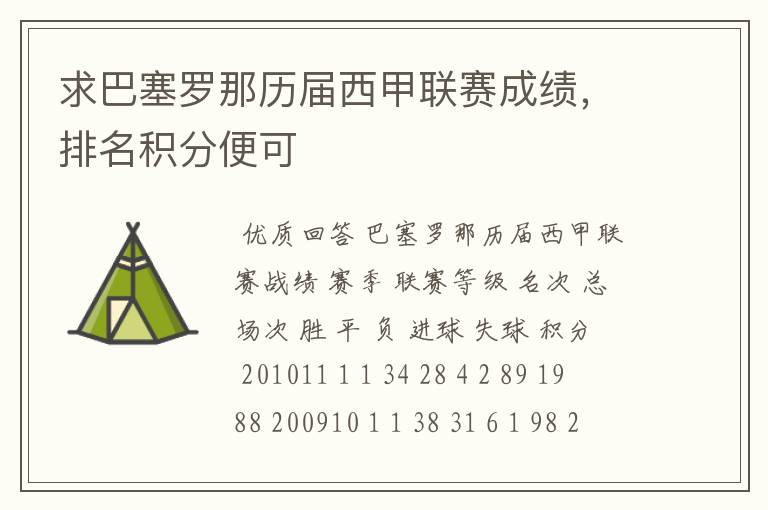奥运会冠军英文
今天运困体育就给我们广大朋友来聊聊奥运会冠军,希望能帮助到您找到想要的答案。
奥运会冠军英文
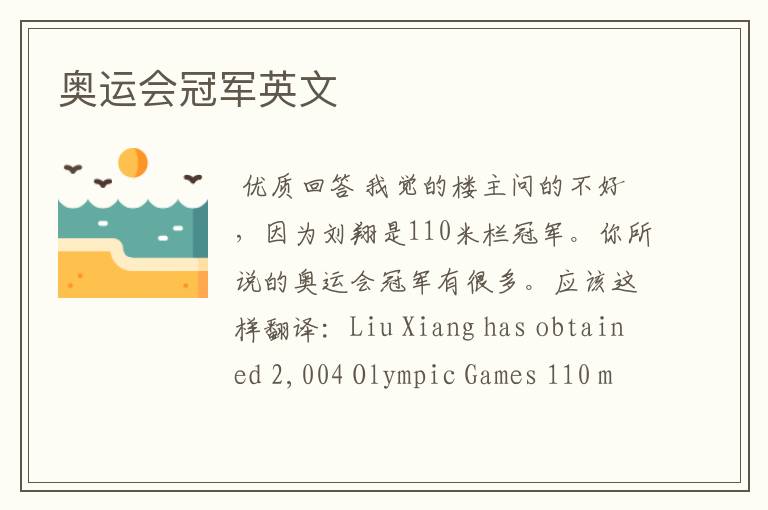
优质回答我觉的楼主问的不好,因为刘翔是110米栏冠军。你所说的奥运会冠军有很多。应该这样翻译:Liu Xiang has obtained 2,004 Olympic Games 110 meters fences champions
冠军英文champion
优质回答冠军英文champion:
冠军英文的正确写法是Champion。
它是一个名词,表示在比赛或竞争中获胜的人或团队。
知识拓展:
以下将对Champion这个单词的意义、拓展和常见用法进行详细介绍。
一、Champion的含义和拓展
1、基本含义
在英语中,Champion通常被用来描述在比赛或竞争中获胜的人或团队。
2、官方用法
在一些体育赛事中,Champion是官方使用的称呼,例如足球世界杯的冠军可以被称为"FIFA World Cup Champion"。
3、引申含义
Champion也可以用于描述在工作、学习或生活中获得成功的人或者组织。此时,Champion的含义更加广泛、抽象。
二、Champion的常见用法
1、作为名词使用
Champion作为名词使用时,可以表示获胜者或冠军。例如:"He is the champion of the tennis tournament."
2、作为动词使用
Champion作为动词使用时,可以表示支持或拥护某种观点或行为。例如:"She champions the idea that everyone deserves equal opportunities in life."
3、作为形容词使用
Champion还可以作为形容词使用,表示出类拔萃的、最佳的。例如:"This is a champion performance."
三、Champion的应用领域
1、体育竞赛
Champion最常见的应用领域就是体育竞赛。在各种比赛中,获得冠军是选手或团队追逐的目标。
2、科技、商业领域
在科技和商业领域,Champion也是一个重要的概念。例如,某些公司会为突出表现的员工颁发Champion奖项。
3、社会活动
Champion也可以用于描述那些致力于推动社会变革的人或组织,例如环保、健康、教育等领域的公益活动。
四、Champion的相关词汇
1、Runner-up
Runner-up指的是在比赛中获得第二名的人或团队。
2、Finalist
Finalist指的是在比赛中进入决赛的人或团队。
3、Medalist
Medalist指的是在奥运会等大型体育赛事中获得奖牌的选手。
总之,Champion是一个多功能的单词,除了代表在比赛或竞争中获胜的人或团队之外,还可以用于形容出类拔萃的表现,以及描述在各个领域里为改变世界做出杰出贡献的人和组织。无论在哪个领域,成为Champion需要经过艰苦卓绝的努力、积极拼搏的精神和永不放弃的决心。
奥运会的英文怎么说?
优质回答the Olympic Games
Olympic GamesOlympiadOlympics
例句:
他在夏季奥运会上有望给英国拿牌儿。
He is a medal hope for Britain in the summer Olympics.
奥运会英文说法例句:
1. He has probably said goodbye to his last chance of Olympic gold.
他可能已经失去了夺取奥运会金牌的最后机会。
2. Of course, nothing is going to eclipse winning the Olympic title.
当然,没有什么能比得过赢得奥运会冠军。
3. For Pritchard, reaching an Olympics was the climax of her career.
对普里查德来说,参加奥运会是她事业上的巅峰。
4. I will be in Atlanta for the next Olympics.
我将参加在亚特兰大举行的下届奥运会。
5. An Olympic gold medal is the most sought-after prize in world sport.
在世界体坛上,一枚奥运会金牌是最令人向往的奖项。
6. When America boycotted the Moscow Olympics it cheapened the medals won.
美国抵制莫斯科奥运会的行为使金牌的含金量降低了。
我的梦想是奥运会冠军,谁能帮我英文演讲稿~~万分感谢
优质回答Hello, everybody. Today our topic is " the Olympic Game is for all us".
If we want the Olympic Game is for all us, we should know something as the follows:
First, we should know the usual words of the Olympic Games:
奥运会Olympic Games
奥运会选拔赛Olympic trial
国际奥委会International Olympic Committee
奥运会会歌Olympic Anthem
奥运火炬Olympic torch
奥运会代表团Olympic delegation
奥运村Olympic village
组委会organization committee
开幕式opening ceremony
闭幕式closing ceremony
吉祥物mascot
颁奖台podium
Do you remember them We'll have a small test later.
Well, second, we should know the history about the Olympic Games.
The Olympic Games consist of the Games of the Olympiad and the Olympic Winter Games. Both take place every four years.
奥运会包括夏季奥运会和冬季奥运会,它们都是每四年举办一次。
Games held in ancient times on the plain of Olympia in Greece every four years. It was a time for laying aside political and religious differences, as athletes from all the Greek cities and districts competed. The games included patriotic and religious rituals as well as athletic contests, and high honors were given to the winners. The Greeks counted their years by olympiads (periods of four years) and dated events from the first Olympics in 776 b.c.
April 6, 1896, was definitely a day to remember. King George I of Greece announced the opening of the first International Olympic Games in Athens. A total of 245 athletes from 14 nations competed in the ancient Panathenaic stadium.
In this first modern Games, the winner was awarded a silver medal. The second athlete was given a bronze medal while the third athlete received nothing.
The Olympic Games deteriorated under Roman rule of Greece and were halted in the fourth century. They were revived in the late nineteenth century, with goals of peace and fellowship modeled on those of the ancient Olympics. The modern Olympics include many athletic events of the original games, such as the discus throw.
Then, let us know about the mascot of the Olympic Games.
Like the Five Olympic Rings from which they draw their color and inspiration, Fuwa will serve as the Official Mascots of Beijing 2008 Olympic Games, carrying a message of friendship and peace--and blessings from China--to children all over the world.
Designed to express the playful qualities of five little children who form an intimate circle of friends, Fuwa also embody the natural characteristics of four of China's most popular animals--the Fish, the Panda, the Tibetan Antelope, the Swallow--and the Olympic Flame.
Each of Fuwa has a rhyming two-syllable name--a traditional way of expressing affection for children in China. Beibei is the Fish, Jingjing is the Panda, Huanhuan is the Olympic Flame, Yingying is the Tibetan Antelope and Nini is the Swallow.
When you put their names together--Bei Jing Huan Ying Ni--they say "Welcome to Beijing," offering a warm invitation that reflects the mission of Fuwa as young ambassadors for the Olympic Games.
Fuwa also embody both the landscape and the dreams and aspirations of people from every part of the vast country of China. In their origins and their headpieces, you can see the five elements of nature--the sea, forest, fire, earth and sky--all stylistic rendered in ways that represent the deep traditional influences of Chinese folk art and ornamentation.
Spreading Traditional Chinese Blessings Wherever They Go
In the ancient culture of China, there is a grand tradition of spreading blessings through signs and symbols. Each of Fuwa symbolizes a different blessing--and will honor this tradition by carrying their blessings to the children of the world. Prosperity, happiness, passion, health and good luck will be spread to every continent as Fuwa carry their invitation to Beijing 2008 to every part of the globe.
At the heart of their mission--and through all of their work--Fuwa will seek to unite the world in peace and friendship through the Olympic spirit. Dedicated to helping Beijing 2008 spread its theme of One World, One Dream to every continent, Fuwa reflect the deep desire of the Chinese people to reach out to the world in friendship through the Games--and to invite every man, woman and child to take part in the great celebration of human solidarity that China will host in the light of the flame in 2008.
In China's traditional culture and art, the fish and water designs are symbols of prosperity and harvest. And so Beibei carries the blessing of prosperity. A fish is also a symbol of surplus in Chinese culture, another measure of a good year and a good life.
The ornamental lines of the water-wave designs are taken from well-known Chinese paintings of the past. Among Fuwa, Beibei is known to be gentle and pure. Strong in water sports, she reflects the blue Olympic ring.
Jingjing makes children smile--and that's why he brings the blessing of happiness wherever he goes. You can see his joy in the charming naivety of his dancing pose and the lovely wave of his black and white fur. As a national treasure and a protected species, pandas are adored by people everywhere. The lotus designs in Jingjing's headdress, which are inspired by the porcelain paintings of the Song Dynasty ( A.D.960-1234), symbolize the lush forest and the harmonious relationship between man and nature. Jingjing was chosen to represent our desire to protect nature's gifts--and to preserve the beauty of nature for all generations. Jingjing is charmingly nave and optimistic. He is an athlete noted for strength who represents the black Olympic ring.
In the intimate circle of Fuwa, Huanhuan is the big brother. He is a child of fire, symbolizing the Olympic Flame and the passion of sport--and passion is the blessing he bestows. Huanhuan stands in the center of Fuwa as the core embodiment of the Olympic spirit. And while he inspires all with the passion to run faster, jump higher and be stronger, he is also open and inviting. Wherever the light of Huanhuan shines, the inviting warmth of Beijing 2008--and the wishful blessings of the Chinese people--can be felt. The firery designs of his head ornament are drawn from the famed Dunhuang murals--with just a touch of China's traditional lucky designs. Huanhuan is outgoing and enthusiastic. He excels at all the ball games and represents the red Olympic ring.
Like all antelopes, Yingying is fast and agile and can swiftly cover great stretches of land as he races across the earth. A symbol of the vastness of China's landscape, the antelope carries the blessing of health, the strength of body that comes from harmony with nature. Yingying's flying pose captures the essence of a species unique to the Qinghai-Tibet Plateau, one of the first animals put under protection in China. The selection of the Tibetan Antelope reflects Beijing commitment to a Green Olympics. His head ornament incorporates several decorative styles from the Qinghai-Tibet and Sinkiang cultures and the ethnic design traditions of Western China. Strong in track and field events, Yingying is a quick-witted and agile boy who represents the yellow Olympic ring.
Every spring and summer, the children of Beijing have flown beautiful kites on the currents of wind that blow through the capital. Among the kite designs, the golden-winged swallow is traditionally one of the most popular. Nini's figure is drawn from this grand tradition of flying designs. Her golden wings symbolize the infinite sky and spread good-luck as a blessing wherever she flies. Swallow is also pronounced "yan" in Chinese, and Yanjing is what Beijing was called as an ancient capital city. Among Fuwa, Nini is as innocent and joyful as a swallow. She is strong in gymnastics and represents the green Olympic ring.
And, how Chinese people think and do for the Olympic Games
Chinese people always appreciate the purposes and principles of Olympic ideal, support the efforts of Olympic Games to promote world peace. The Chinese Government and people are doing our the utmost/best to prepare for the 2008 Olympic Games in Beijing, and shooting at the pageant with advocating Olympic ideal, sparkpluging world peace and enhancing the relationships among the world. Olympic spirit are gonna spread again in orient cultural ancient China.
中国人民一向赞赏奥林匹克精神的宗旨和原则,支持奥林匹克运动为促进世界和平所做的努力。中国政府和中国人民正全力以赴,做好2008年北京奥运会的筹备工作,力争把2008年奥运会办成一次弘扬奥林匹克精神、促进世界和平、增进各国人民友谊的盛会,让奥林匹克精神在中国这一东方文明古国 再次得到发扬。
Now, do you remember the usual words we learned at firstWe'll have a test 30 minutes later.
奥运会Olympic Games
奥运会选拔赛Olympic trial
国际奥委会International Olympic Committee
奥运会会歌Olympic Anthem
奥运火炬Olympic torch
奥运会代表团Olympic delegation
奥运村Olympic village
组委会organization committee
开幕式opening ceremony
闭幕式closing ceremony
吉祥物mascot
颁奖台podium
I think you know much about the Olympic Games.
At last, let us read a poem and listen to the Olympic Anthem.
奥运会冠军英语简介
优质回答Liu Xiang (born July 13, 1983) is a Chinese hurdling athlete and Olympic gold medalist who holds the current world record in the 110 metres hurdles with a time of 12.88 seconds.
In 2002, Liu launched his professional career by winning his first IAAF Grand Prix in Lausanne with a World Junior and Asian record time of 13.12 seconds (+1.6 m/s tail wind) in the 110 metres hurdles. Afterward, Liu chased down one of his heroes Allen Johnson, then the world number 1 sprint hurdler, for an autograph. When interviewed about the Athens Olympic Games two years later, Liu said he would be satisfied if he qualified for the finals.
Liu is also the world junior indoor record holder in the 60m Hurdles with a time of 7.55s. While enroute to a longer race Liu also set the world junior indoor record in the 50m Hurdles with a time of 6.52s. These records are not officially recognized by the IAAF.
He has since made the finals at the IAAF World Championships in Athletics and IAAF World Indoor Championships in Athletics (twice); two of the three cases has seen American hurdling great Allen Johnson take the major prize. In May 2004 at an IAAF race in Osaka Japan, Liu managed to beat Johnson with an Asian-record time of 13.06 seconds. Liu had become his hero's equal just before the Athens Olympic Games.
Still young, Liu had improved steadily, and won a gold medal at the 2004 Summer Olympics in the 110 meters hurdles event. In the final, he equaled Colin Jackson's 1993 world record of 12.91 seconds. The wind assistance for Colin's race was +0.5 m/s whereas Liu's wind assistance was +0.3 m/s. This was the first time an athlete of non-African descent had reached under 13 seconds for the 110 metres hurdles.
In 2005, Liu was awarded the Laureus World Sports Award for Newcomer of the Year.
Liu set a new world record in the 110 metres hurdles, at the Super Grand Prix in Lausanne on July 11, 2006, with a time of 12.88 seconds (+1.1 m/s tail wind). The record was ratified by the IAAF. In the same race, the American Dominique Arnold also beat the previous record with a time of 12.90s.
今天的内容先分享到这里了,读完本文《奥运会冠军英文》之后,是否是您想找的答案呢?想要了解更多,敬请关注www.zuqiumeng.cn,您的关注是给小编最大的鼓励。
本文来自网络,不代表本站立场,转载请注明出处:https://www.zuqiumeng.cn/wenda/1008901.html
